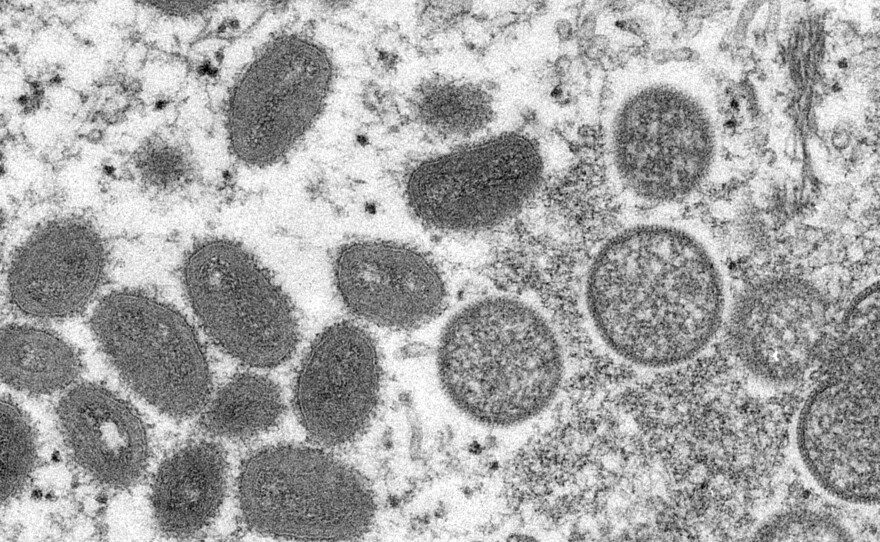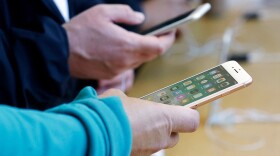The Biden administration announced an "enhanced nationwide vaccination strategy" to curb the spread of monkeypox in the U.S.
In a call with reporters on Tuesday, top federal health officials — including director of the Centers for Disease Control and Prevention Dr. Rochelle Walensky and Dr. Ashish Jha, the White House COVID-19 response coordinator — laid out the administration's plan to expand the availability of a vaccine for monkeypox.
The Department of Health and Human Services will make 296,000 doses available in the coming weeks — within that amount, 56,000 doses will be made available immediately — and expects a total of 1.6 million doses to be available in the U.S. by the end of the year. The vaccine being distributed is the JYNNEOS vaccine, which is administered in two doses given 28 days apart.
There are now more than 300 confirmed cases of monkeypox in the U.S., according to the CDC.
As NPR has reported, a lack of testing for monkeypox means the outbreak is likely bigger than the case count suggests.
There have been no reported deaths from monkeypox in the U.S. during the current outbreak.
Monkeypox spreads through direct contact with infectious rashes or infectious fluids. The virus might linger on some clothing or surfaces. In this outbreak, health officials stress that it seems to be primarily driven by intimate or sexual contact.
Researchers are currently investigating whether it can spread from people without symptoms, or through bodily fluids like semen or vaginal discharge. "It's important that we get ahead of the game, both in terms of the public health response and our scientific understanding of the transmission dynamics and the evolution of the virus," to get the outbreak under control, says Dr. Seth Blumberg, a professor of medicine at the University of California, San Francisco.
Under this new strategy, the vaccine will now be given to people with confirmed and presumed monkeypox exposure. That includes "those who had close physical contact with someone diagnosed with monkeypox, those who know their sexual partner was diagnosed with monkeypox, and men who have sex with men who have recently had multiple sex partners in a venue where there was known to be monkeypox or in an area where monkeypox is spreading," according to an HHS press release.
Federal officials said they were also working on improving access to testing and educational outreach.
"Everything [the CDC] is doing, they should have done weeks ago," says Dr. Ali Khan, a former CDC official who's now at the University of Nebraska. Still, "the current plan is absolutely appropriate for what we're currently seeing," he says. "It goes as far as you would go, based on the available information," by focusing on education, testing and vaccination in high risk groups.
Copyright 2022 NPR. To see more, visit https://www.npr.org. 9(MDAzMjM2NDYzMDEyMzc1Njk5NjAxNzY3OQ001))








